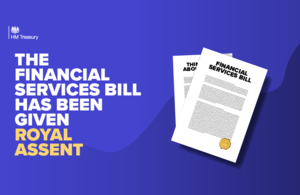Investigating EU anti-dumping duties on two steel products
News story
TRID has today opened two new investigations into existing European Union anti-dumping duties to determine if they are fit for purpose in the UK.

The Trade Remedies Investigations Directorate (TRID) has today opened two new investigations into existing European Union anti-dumping duties to determine if they are fit for purpose in the UK.
TRID, which will shortly become an arms-length body of the Department of International Trade, will undertake transition reviews into existing duties on certain Cold Rolled Flat Steel products from China and Russia as well as high fatigue performance iron or steel concrete reinforcing bars and rods (sometimes referred to as HFP Rebars) from China.
The reviews will consider whether the duties are needed to offset dumping of Cold Rolled Flat Steel and HFP Rebar in the UK and whether UK industry would be damaged if the duties were no longer applied. Chief Executive of TRID Oliver Griffiths said:
“The initiation of these two new investigations means we now have 11 active transition reviews, with more to come. In every case our focus is on defending UK economic interests against unfair international trade practices.”
For both Cold Rolled Flat Steel and HFP Rebar, the investigations will cover 1 April 2020 to 31 March 2021. In order to assess injury, TRID will examine the period from 1 April 2017 to 31 March 2021.
TRID will shortly become an independent arms length body of the Department of International Trade as the Trade Bill has now become law.
View further information on our current Transition Reviews, including the notices of initiation for both Cold Rolled Flat Steel and HFP Rebar.
Note to editors:
- Anti-dumping duties allow a country or union to take action against goods sold at less than their normal value, defined as the price for ‘like goods’ sold in the exporter’s home market.
- Cold Rolled Flat Steel is used in the manufacture of parts for the automotive industry, construction components and domestic appliances, as well as other goods. The products under investigation include:
- Flat-rolled products of iron or non-alloy steel, or other alloy steel but excluding of stainless steel, of all widths, cold-rolled (cold-reduced), not clad, plated or coated ad not further worked than cold-rolled (cold-reduced).
- HFP Rebar, also known as reinforcement steel and reinforcing steel, is typically used to reinforce concrete and masonry structures to strengthen and hold the concrete in tension
Published 29 April 2021

